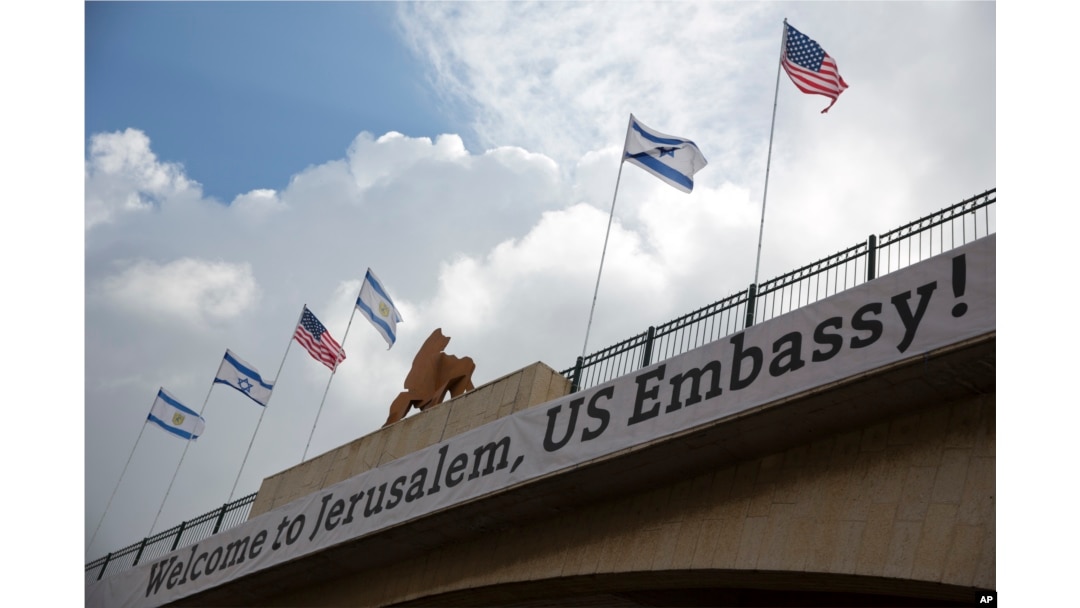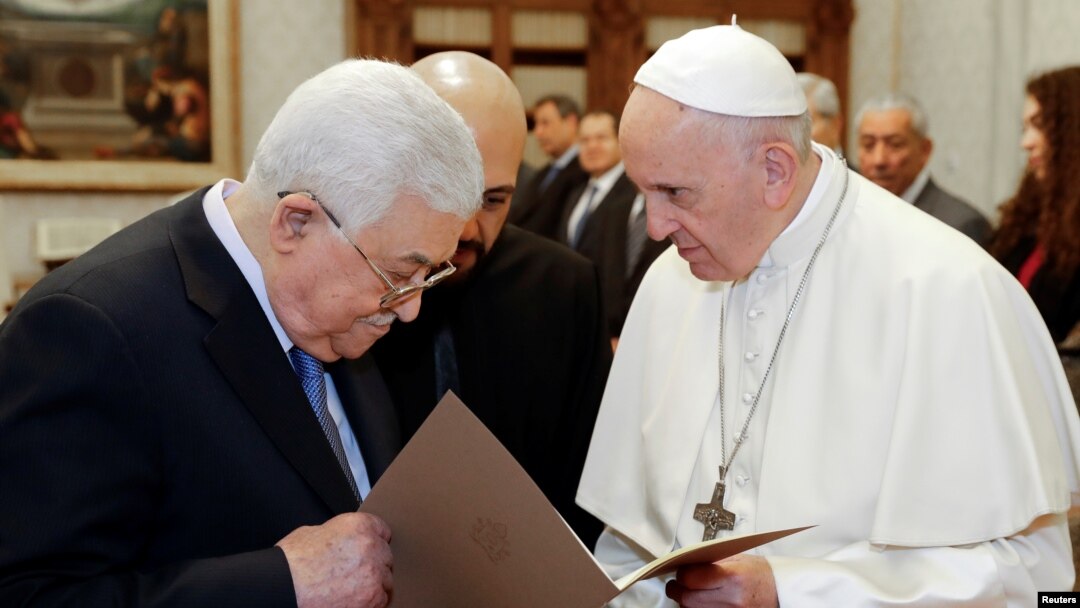The Vatican expressed concern Monday over the status of Jerusalem as Pope Francis and Palestinian President Mahmoud Abbas held their first meeting since the United States stirred international anxiety by moving its embassy there.
The two embraced and kissed on the cheek as the pontiff welcomed Abbas to a library in the Vatican's Apostolic Palace for a private, 20-minute meeting.
"Particular attention was reserved for the status of Jerusalem, underlining the importance of recognizing and preserving its identity and the universal value of the holy City for the three Abrahamic religions," a Vatican statement said, referring to Christianity, Judaism and Islam.
U.S. President Donald Trump outraged the Arab world last year when he reversed decades of policy by recognizing Jerusalem as Israel's capital and put Washington's embassy there. It was opened in May.

FILE - A sign is seen on a bridge leading to the U.S. Embassy compound ahead the official opening in Jerusalem, May 13, 2018.
Palestinians, with broad international backing, want East Jerusalem as the capital of a future independent state, while Israel views the whole city its "united and eternal" capital.
The Vatican expressed concern last year at Trump's move, saying the city's "status quo" should be respected. Francis has called for all to honor U.N. resolutions on the city.
The official Palestinian news agency WAFA said Abbas briefed the pope on "the implications of the U.S. decision."
As Abbas was leaving the library, he told the pope: "We are counting on you." It was not clear what he was referring to.
WATCH: Jerusalem Embassy Stokes New Anger
Your browser doesn’t support HTML5
Jerusalem Embassy Stokes New Anger
The Vatican backs a two-state solution to the Palestinian-Israeli conflict, with both sides agreeing on the status of Jerusalem as part of the peace process.
The statement said Abbas and the pope also discussed efforts to reactivate the Israeli-Palestinian peace process and hoped for "a renewed commitment on the part of the international community to meet the legitimate aspirations of both peoples."
They also urged an end to "extremism and fundamentalism" in the Middle East, and called for reconciliation among Palestinian factions. Abbas' Fatah party is dominant in the West Bank, while the Islamist group Hamas controls Gaza.


